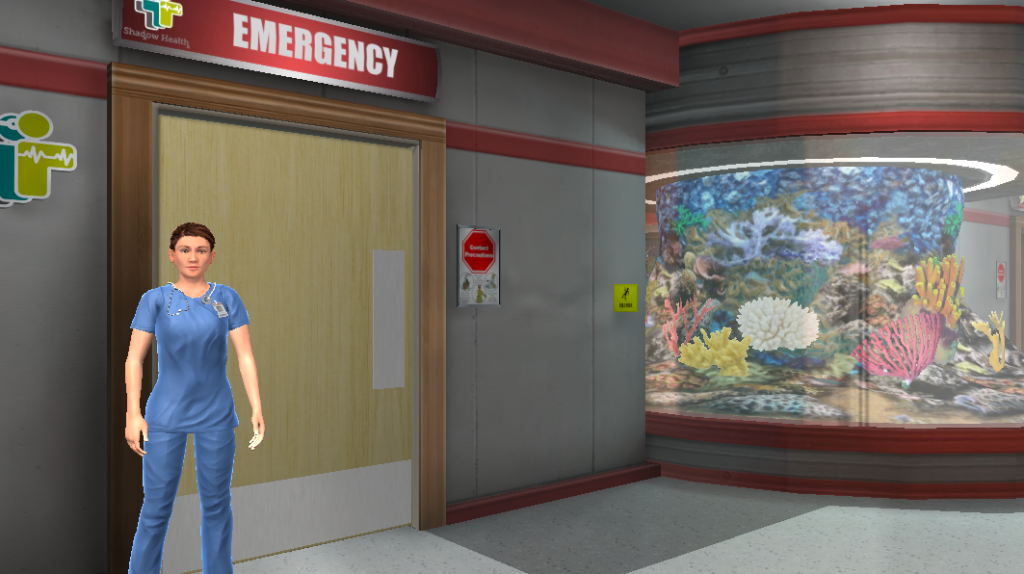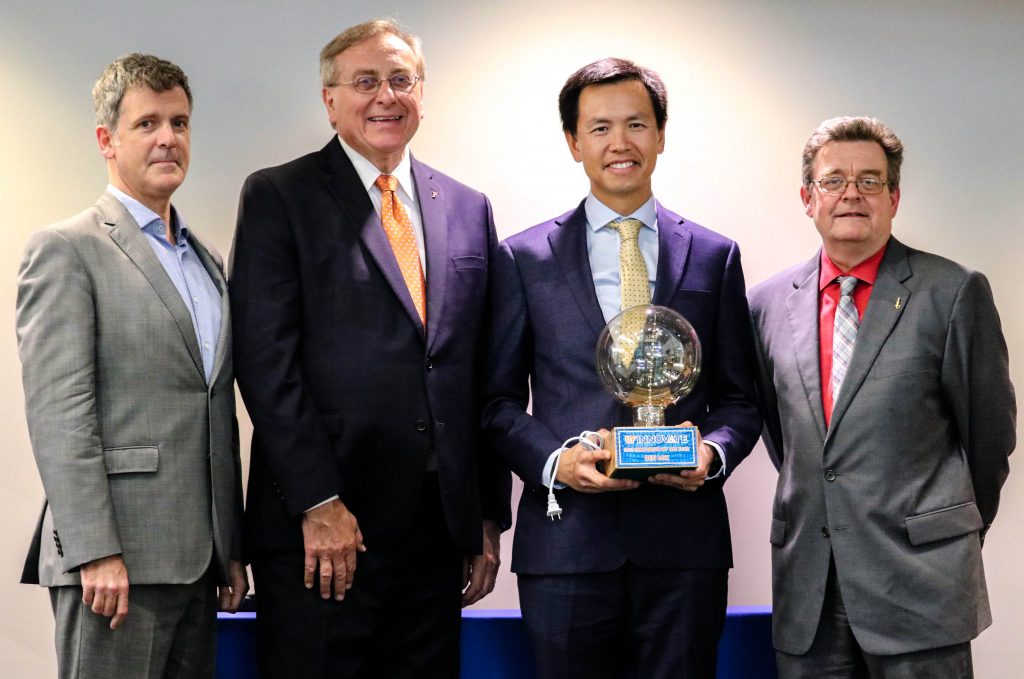Shadow Health’s ‘Digital Clinical Experiences’ fill a need, especially now
 One potential casualty of the COVID-19 pandemic might have been nursing programs. Might have been but wasn’t, due to a virtual-patient interaction program created by University of Florida researcher Benjamin Lok, Ph.D.
One potential casualty of the COVID-19 pandemic might have been nursing programs. Might have been but wasn’t, due to a virtual-patient interaction program created by University of Florida researcher Benjamin Lok, Ph.D.
Because personal protective equipment was in high demand, nursing students, such as those at Liberty University in Virginia, could not enter hospitals to gain clinical practice experience required for graduation. Certainly, the need to train the next generation of nurses on the frontline of patient care had never been greater, but traditional routes to getting experience were not possible.
“Our students are going to get their hours, there is no question about it, and the Board has come up with a few exceptions to help get our students ready to go,” said Liberty University Dean Shanna Akers.
One of those exceptions was the move to use Shadow Health’s Digital Clinical Experiences, which provides virtual patient encounters for undergraduate and graduate nursing students. Dr. Lok co-founded Shadow Health.
“Currently, thousands of nursing students are able to continue their preparation by using Shadow Health’s virtual patients to practice clinical reasoning and therapeutic communication skills,” Dr. Lok shared.

Liberty University adapted its program to a virtual format, adding 500 hours of required clinical practice by using virtual clinical simulations with digital patients created by Dr. Lok and Shadow Health.
Dr. Lok, a professor in the Department of Computer & Information Science & Engineering within the Herbert Wertheim College of Engineering, was UF Innovate’s Inventor of the Year for fiscal year 2019.
He created a virtual patient interaction system that allows future healthcare providers to practice their communication skills. His technology that built Shadow Health started with a question.
“How can we use virtual characters, the ones we see in video games, to train communications skills?” Dr. Lok said. “How do you train someone to talk to someone else?”
He and his research group began working in the realm of virtual reality around 16 years ago. This thought process led Dr. Lok and his team to explore high-stakes patient communication in the medical field.
Growing up with his mother as a nurse, Dr. Lok witnessed the difficulties she faced with patient interactions and her lack of a way to practice them.
Through a combined effort of more than 100 researchers from the field of medicine, psychology, computer science, and education, Dr. Lok and his team created Shadow Health. A software program, it focuses on training educators and students with a conversation-based simulation for patient interaction in clinical settings.
UF Innovate | Tech Licensing connected David Massias, a local entrepreneur, with Dr. Lok to create Shadow Health. Massias encouraged Lok to use his computerized virtual patients to help the nursing field. UF graduate, Dr. Aaron Kotranza, worked with Massias and Dr. Lok and co-founded Shadow Health as well.
The team dreamed of creating an environment where skills such as empathy could be further developed without the time-crunch of treating patients. Without the added pressure, providers can use Shadow Health software to explore patient interaction scenarios that they may or may not regularly encounter in the field.
“Being allowed to ‘fail’ in a safe environment is how we get better; it’s how we improve,” Dr. Lok said.
Dr. Lok said that his ultimate goal is to improve the communication skills of doctors and nurses. As high-stakes communications such as patient-provider interactions are difficult to practice, he and his team began developing ways that providers could role-play scenarios.
In this environment, one may be faced with a diverse group of people. Hence, Dr. Lok and his team based the virtual patients in many different personal backgrounds. This included age, race, socioeconomic status, gender, identity, and sexual orientation.
The Shadow Health suite also allows users to talk with virtual patients using open-ended questions. Providers can view a patient’s health record and use the data collected from the interview to determine the correct treatment plan.
Creating an environment for doctors and nurses to improve communication skills has led Shadow Health technology to be implemented in UF’s College of Nursing. Over 1,800 partner schools use the software as well.
According to Dr. Lok, students can assess their performance and score to gauge their progress in using the Digital Clinical Experience Score. Instructors can use the student’s score as a grade in their course. Shadow Health’s built-in student performance index also provides detailed feedback that can help students identify their strengths and weaknesses.
Despite Shadow Health’s many benefits, Dr. Lok said he never expected his invention to have such a wide-ranging impact.
One-quarter of all nursing students in the United States and Canada are currently using Shadow Health in their training, Dr. Lok said. Most people he interacts with on a daily basis become touched in some way by with his technology whether they know it or not.
“That’s what’s been most rewarding about this,” he said. “It’s expanded my thinking and made me see how people can be impacted by your ideas.”
Originally published at http://innovate.research.ufl.edu.
Denielle Smith and Kyle Chambers
Marketing Interns
UF Innovate | Tech Licensing